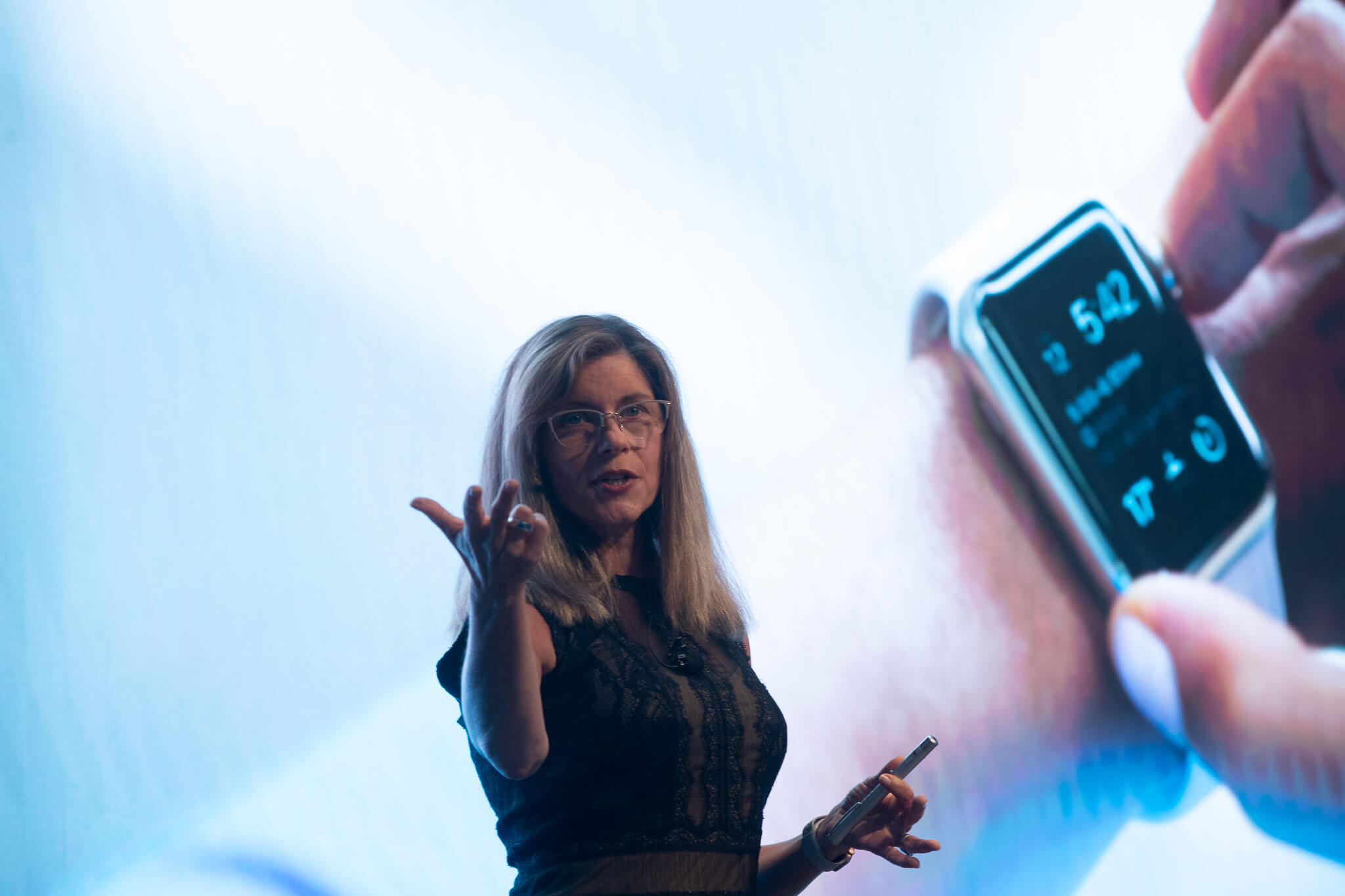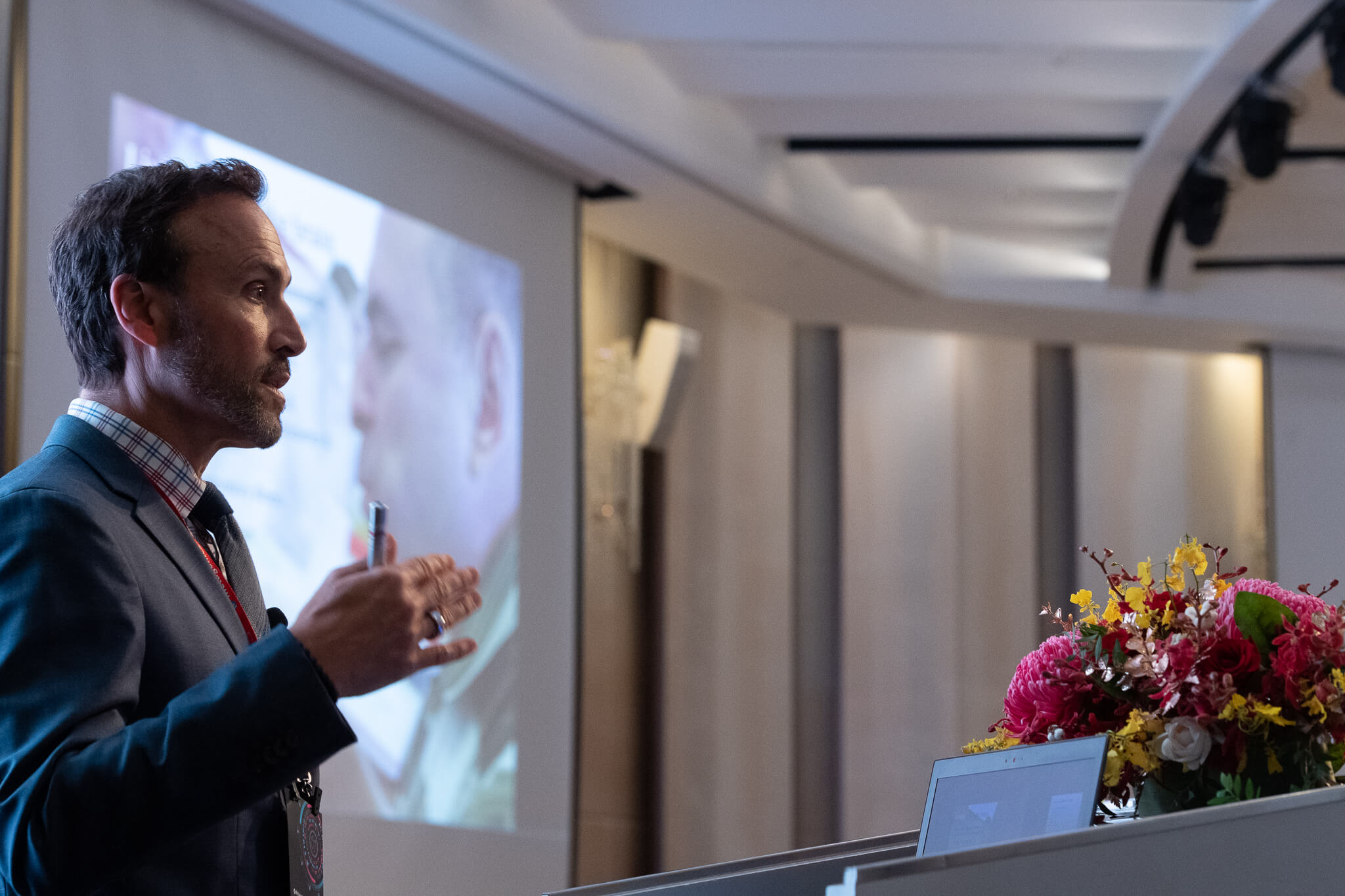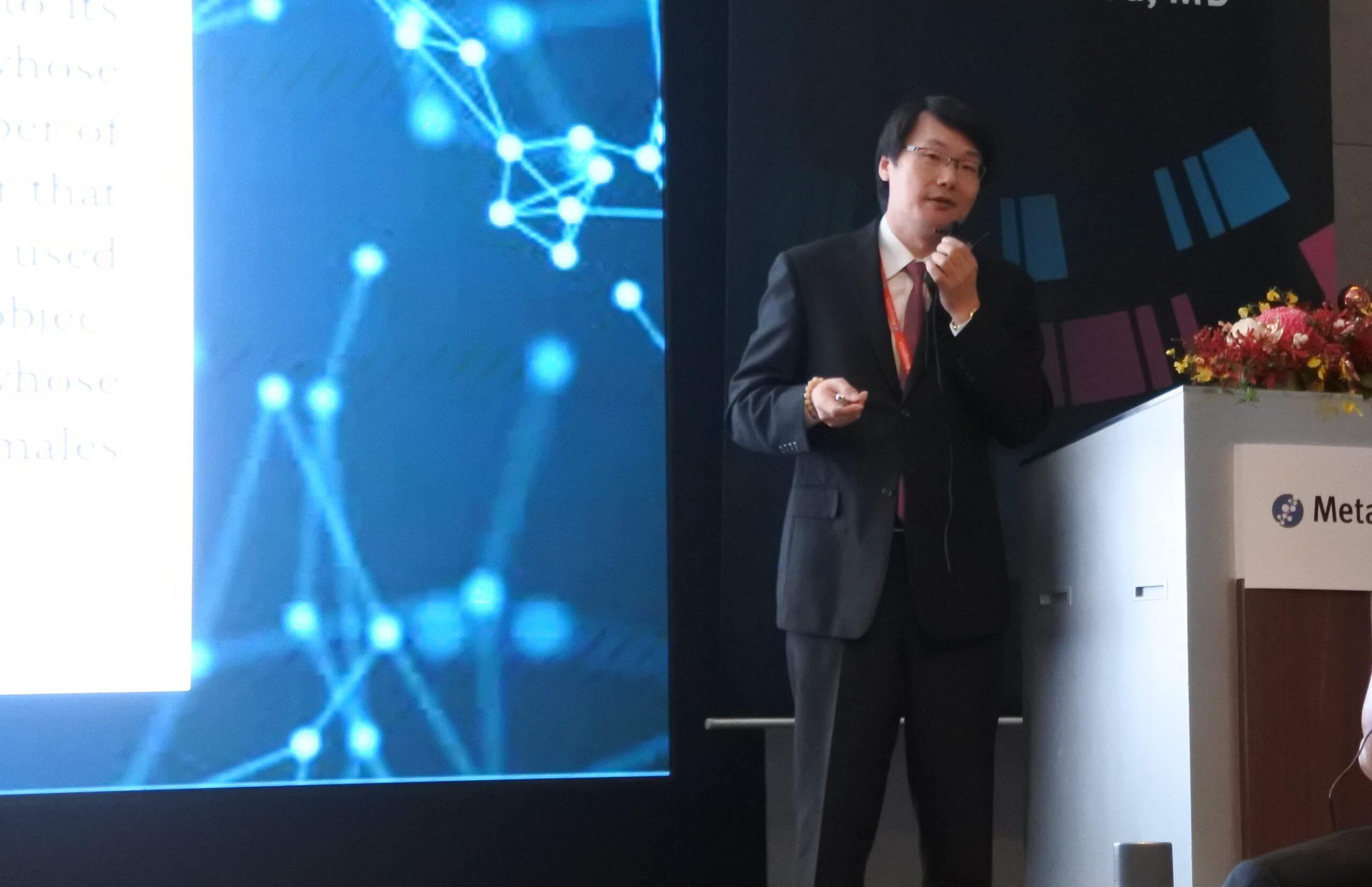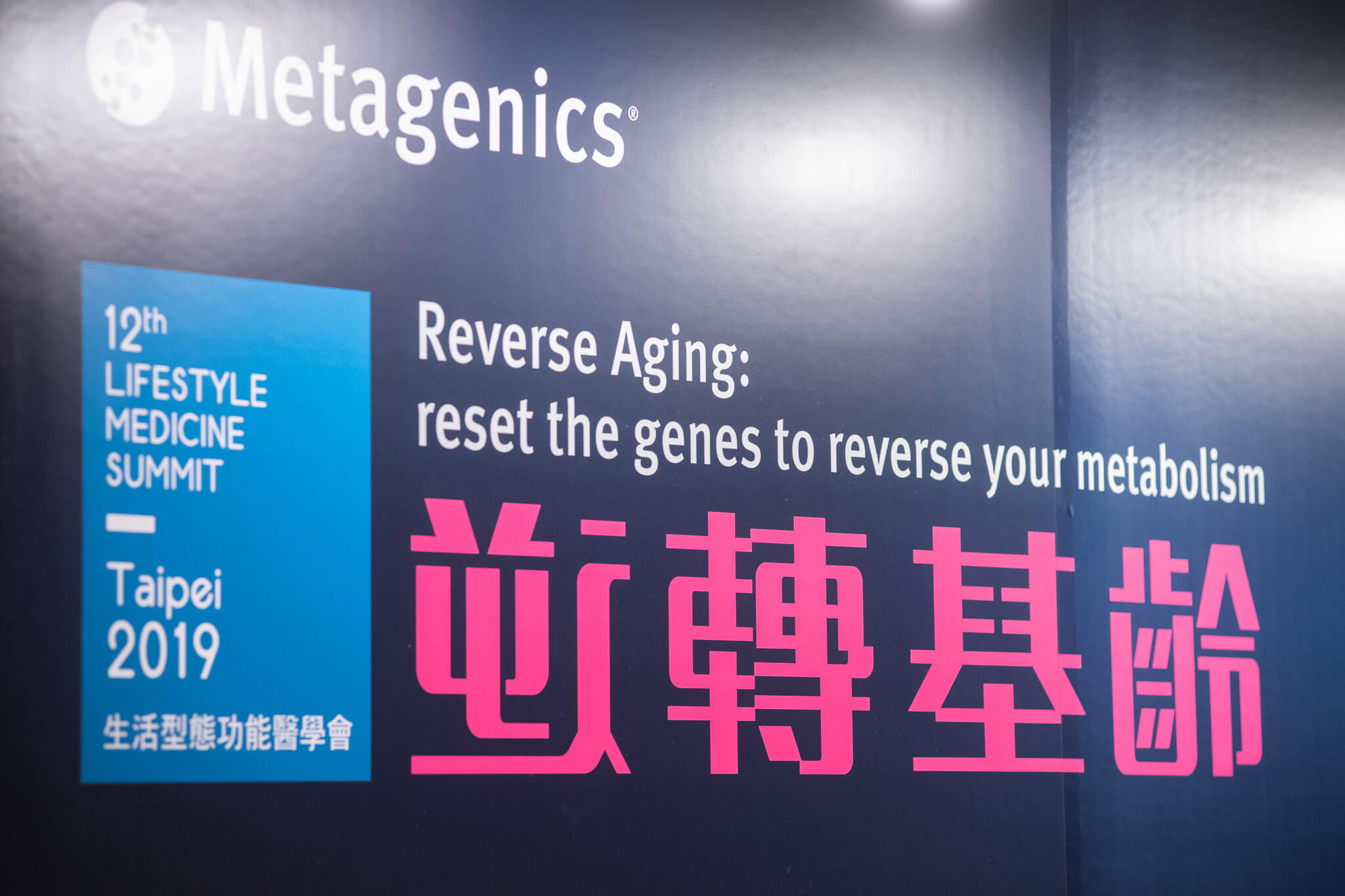Reverse Aging: Reset The Genes To Reverse Your Metabolism
The Lifestyle Medicine Summit 2019 invited Dr. Sara Gottfried from Harvard Medical School, Dr. Myles Spar, an authority in male’s integrative medicine in the U.S., Dr. Kuei-Liang Wang, the Founder of the Anfa Anti-aging Clinic, and Dr. Po-Jen Liu, the chairman of Taiwan Society of Functional Medicine & Nutrigenomics to share their professional insights on the impact of genetics, nutrition, and lifestyles on anti-aging.
The Different Aging Journey: Hormonal Difference in Men and Women
Within the lifespan of humans, each sex undergoes different surges of hormonal changes. The hormone activities of men reach their peak around 20 years-old and then declines steadily. Those of women, on the other hand, peak around 30 to 40 years-old and then drop abruptly shortly after. The discussion of hormonal influences is one of the forefront topics in anti-aging research.
Testosterone is a major health indicator for men, it is related to multiple genes like SRD5A2, CYP19A1, UGT2B15, and UGT2B17. Apart from its significant role in sexual maturity, it is also closely related to the normal function of immunity, skeletal, and complex physiological interaction between different organs. In present practice, testosterone is not listed as one of the items in routine checkup, yet statistics show that one in three men who are over 30 years-old has low testosterone blood levels and experience early andropause symptoms like erectile dysfunction, metabolic dysfunction, diabetes, osteoporosis, bone fractures, and cardiovascular diseases. Unfortunately, androgen supplement therapy has its limits and affects the prostate, lipid metabolism, and causes arteriosclerosis. There is currently no consensus on how to treat the symptoms. Dr. Spar stated by improving lifestyle alone, men can elongate their lifespan by 13 years, but men rarely take the initiative to seek medical support. According to Dr. Spar’s long-term observations, setting the treatment goal to men’s expectations and with the additional support of their companion will be critical to encourage men to receive medical aid.

On the other hand, women who are facing menopause often have big surges of hormonal changes, and are usually unprepared for the physiological and psychological effects. The impacts are especially uncomfortable during perimenopause, with troublesome symptoms including emotional instability, night sweats, weight gain, hot flashes, and forgetfulness. In a conference on decreasing the occurrence of breast cancer through better lifestyle, Dr. Gottfried pointed out American women are five times more likely to get breast cancer than Asian women. This is the result of different lifestyles and genetic differences (ex: BRCA1, BRCA 2, TP53, PTEN). According to epidemiological studies, risen cortisol levels caused by stress have strong correlation with cancer in women; it shows that the higher the cortisol level is, the higher the risks could be. In order to relieve the discomfort caused by menopause, as high as 22% of the women in the United States seek hormonal treatment, but increasing the risk of breast cancer along the way. There is no win-win solution in using hormonal drugs, and better solutions are desperately in demand. Luckily, there is a possibility in functional medicine, relative studies show that a healthy diet and weight control can reduce 20-50% of breast cancer risk, and quitting alcohol addiction can reduce risks by 35%. Dr. Gottfried has researched this topic for many years, and strongly advised women to pay more attention to their lifestyles, encouraged breastfeeding for over a year and do personal genetic tests to reduce the occurrence of cancer.

Maintaining Health Has No Secret: Protecting the Brain and Gut Microflora
There is a saying that describes the relationship between genetics, environment and diseases: “Genetics loads the gun and the environment pulls the trigger.” It means everyone has the chance to be dealt with good or bad genetic blueprints, but if we are able to take control of our environment, then the trigger won’t be pulled, and thus of course the disease will never occur. “Who ever tracks their own disease factors?” Dr. Gottfried asked the audience. She pointed out that 10-20% of the aging factors are genetic, while the remaining 80-90% are deeply linked to environmental risk factors and inflammation. Factors such as bad eating habits & lifestyles will induce dysbiosis in the gut and damage intestinal epithelial cells which leads to leaky gut. Under the complex interactions of all the factors, the brain and the gut microflora are the first to be impacted, therefore it is necessary to understand the aging process to the related mechanisms. Russian scientists in the 19th century claimed human lifespan is highly correlated to the balance of microbiome in the body. Studies in recent years point out biological age may not be the same to chronological age. Gut microbiomes are found to have strong links with neuroendocrine systems, and the imbalance of the former could easily lead to elevated risks in Parkinson’s disease, Alzheimer’s disease, or other central nervous system dysfunctions. Apart from microbiome influences, aging also alters the pathway of how glucose is metabolized in brain cells, leading to decreased mitochondria activity and impacting physiological and mind performances. Advance in science has also discovered that the mature brain still maintains a high level of flexibility and recovery abilities, in contrast to past assumptions. Dr. Wang pointed out 70% of the immune cells are located in the colon mucosa, appropriate intake of probiotics can improve genetic performance, also staying away from environmental stroke factors can delay the aging process in the brain.

Reverse Aging by Reclaiming Control Over Your Lifestyle
Through monitoring physiological factors like BMI, specific metabolites in the blood flow, hormonal levels such as HPA-axis hormones, we can adjust our lifestyle accordingly and deal with aging gracefully. How do we prevent inflammation and aging? Dr. Gottfried and Dr. Spar collectively pointed out apart from preventing stress and staying clear of environmental toxicities (smoke, alcohol & drug abuse), maintaining a balanced diet, exercise routinely, enrolling in intermittent fasting, practice meditation and receive quality rests all have significant benefits. A good diet can begin from a good habit. Compared to drugs that can only act on a single biochemical pathway, nutrition has a more comprehensive impact on the body. A rainbow diet provides with various nutrients and antioxidants to create a healthy gut microflora. Intermittent fasting a daily 16-hr fast allows the body to recover in between, also activating anti-aging genes and prevent inflammation. Another topic worth mentioning is environmental hormone toxicity, with the advancement of technology, pollution is presented in every aspect of our lives and have a serious impact on our health. Major factors such as plasticizers, BPA, and phthalates esters are poisonous to human and animal systems. Dr. Liu shared through multiple case studies that consuming indole-3-carbinol compound in cruciferous vegetables to replace glucosinolates can improve the body’s capacity to metabolize toxics and improve anti-cancer performances.
Thousands of years have passed, and humans have yet to discover the fountain of youth. But functional medicine has took the world by storm. With novel scientific discoveries we understand the aging process more by the day. We hope to obtain this knowledge and improve personal lifestyles to finally realize the dream of reversing aging.


©www.geneonline.com All rights reserved. Collaborate with us: service@geneonlineasia.com







